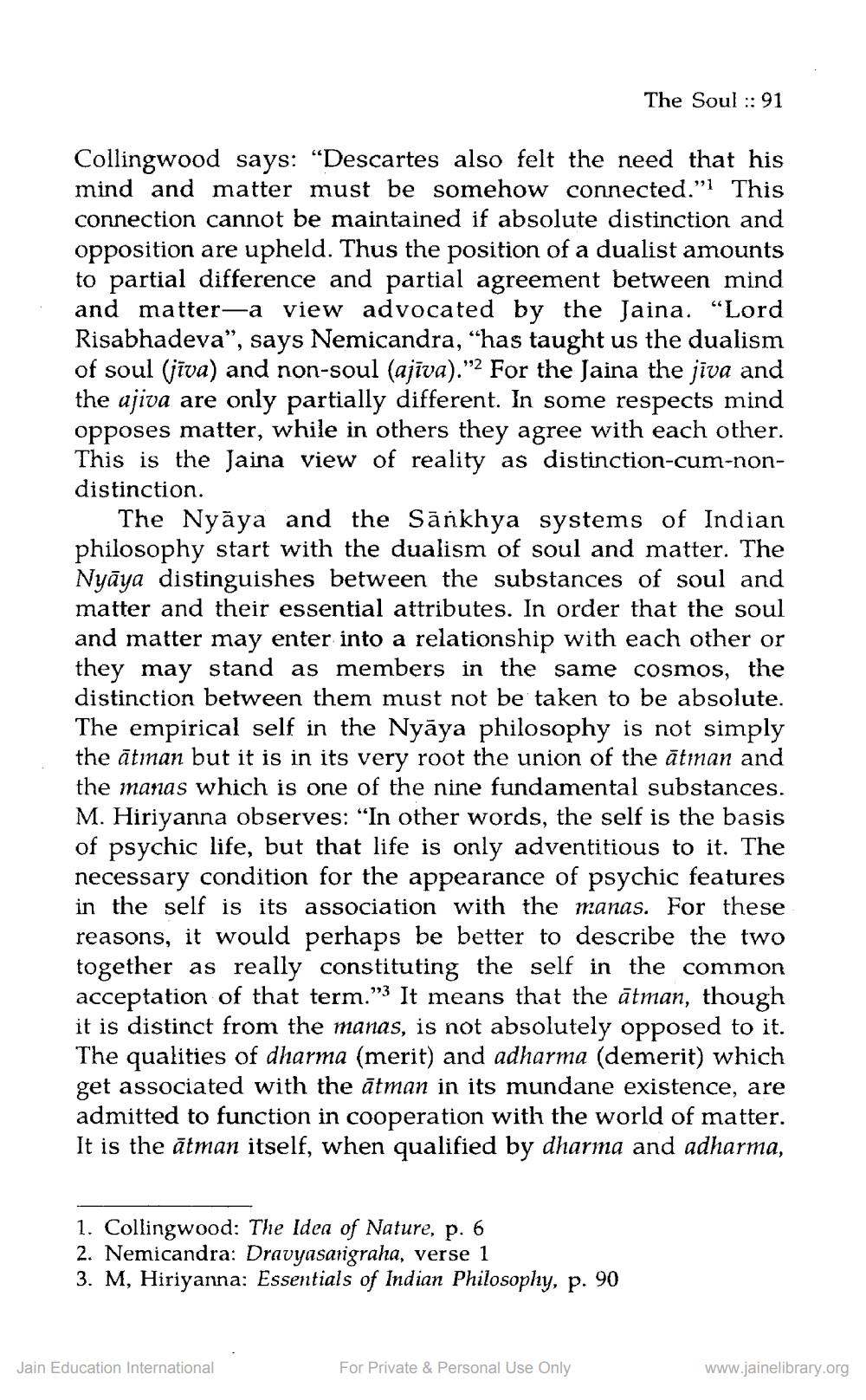________________
The Soul: 91
Collingwood says: "Descartes also felt the need that his mind and matter must be somehow connected." This connection cannot be maintained if absolute distinction and opposition are upheld. Thus the position of a dualist amounts to partial difference and partial agreement between mind and matter-a view advocated by the Jaina. "Lord Risabhadeva", says Nemicandra, "has taught us the dualism of soul (jīva) and non-soul (ajīva)."2 For the Jaina the jīva and the ajiva are only partially different. In some respects mind opposes matter, while in others they agree with each other. This is the Jaina view of reality as distinction-cum-nondistinction.
The Nyaya and the Sankhya systems of Indian philosophy start with the dualism of soul and matter. The Nyaya distinguishes between the substances of soul and matter and their essential attributes. In order that the soul and matter may enter into a relationship with each other or they may stand as members in the same cosmos, the distinction between them must not be taken to be absolute. The empirical self in the Nyāya philosophy is not simply the atman but it is in its very root the union of the atman and the manas which is one of the nine fundamental substances. M. Hiriyanna observes: "In other words, the self is the basis of psychic life, but that life is only adventitious to it. The necessary condition for the appearance of psychic features in the self is its association with the manas. For these reasons, it would perhaps be better to describe the two together as really constituting the self in the common acceptation of that term."3 It means that the atman, though it is distinct from the manas, is not absolutely opposed to it. The qualities of dharma (merit) and adharma (demerit) which get associated with the ātman in its mundane existence, are admitted to function in cooperation with the world of matter. It is the atman itself, when qualified by dharma and adharma,
1. Collingwood: The Idea of Nature, p. 6
2. Nemicandra: Dravyasangraha, verse 1
3. M, Hiriyanna: Essentials of Indian Philosophy, p. 90
Jain Education International
For Private & Personal Use Only
www.jainelibrary.org




